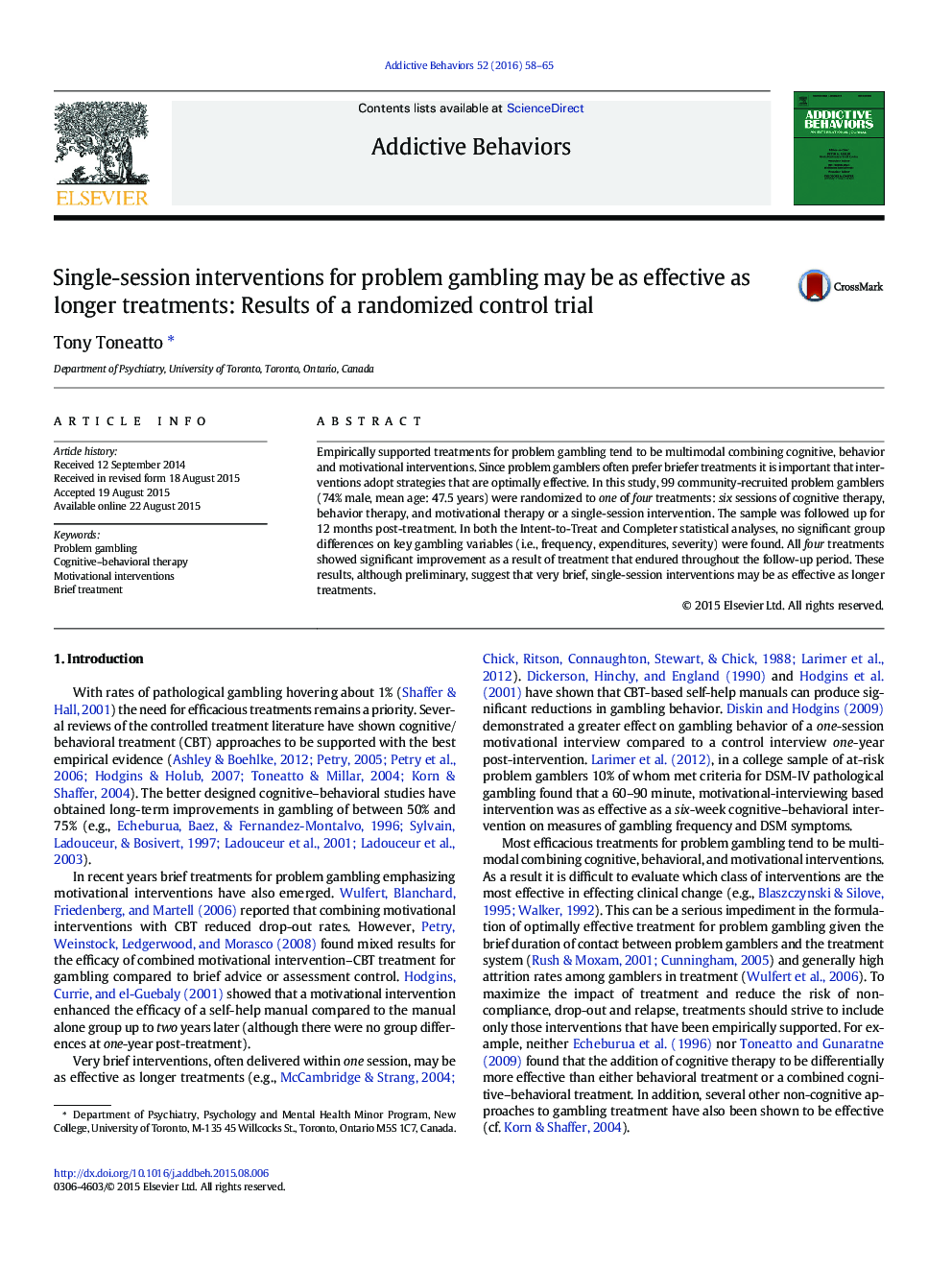| Article ID | Journal | Published Year | Pages | File Type |
|---|---|---|---|---|
| 898615 | Addictive Behaviors | 2016 | 8 Pages |
Empirically supported treatments for problem gambling tend to be multimodal combining cognitive, behavior and motivational interventions. Since problem gamblers often prefer briefer treatments it is important that interventions adopt strategies that are optimally effective. In this study, 99 community-recruited problem gamblers (74% male, mean age: 47.5 years) were randomized to one of four treatments: six sessions of cognitive therapy, behavior therapy, and motivational therapy or a single-session intervention. The sample was followed up for 12 months post-treatment. In both the Intent-to-Treat and Completer statistical analyses, no significant group differences on key gambling variables (i.e., frequency, expenditures, severity) were found. All four treatments showed significant improvement as a result of treatment that endured throughout the follow-up period. These results, although preliminary, suggest that very brief, single-session interventions may be as effective as longer treatments.
